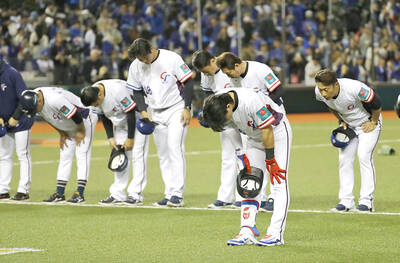Pakistan cricket’s top official admits the deadly attack on the Sri Lankan team convoy could cost his country its co-hosting of the 2011 World Cup.
“How can we force them to play in Pakistan if the security situation doesn’t improve,” Pakistan Cricket Board (PCB) chief Ijaz Butt said yesterday, a day after an ambush by a dozen gunmen left six police officers and a driver dead and seven Sri Lankan players injured.
The Test match was abandoned immediately and the Sri Lankan squad evacuated. It was Pakistan’s first chance to host a Test series in 14 months after Australia, West Indies and India withdrew from proposed tours — all on security grounds.
“It has earned a bad name to Pakistan in international community,” Butt said, adding that no country would contemplate touring unless the security situation improved considerably. “It looks grim for at least six to 12 months.”
Butt deflected questions about security, saying it was a government responsibility.
“Nowhere in the world the cricket board interferes in the security matters and it’s the sole responsibility of the government,” Butt said. “As far as I know, the security level was the same as was in the past when various teams toured Pakistan.”
The International Cricket Council is reviewing plans for the 2011 World Cup, which is set to be co-hosted by Pakistan, India, Bangladesh and Sri Lanka.
Imran Khan, captain of Pakistan’s 1992 World Cup winning team, said Sri Lanka had been promised foolproof security and Tuesday’s attack “was a shameful security lapse.”
“Our interior ministry adviser has more security than what the Sri Lankans got,” he said. “If it was any other country, government officials would have resigned by now, but no such sort of a thing happened here.”
“To talk about the 2011 World Cup in Pakistan when it’s warlike situation everywhere here — the security situation does not look good at all,” he said.

Taiwan kept their hopes of advancing to next year’s World Baseball Classic (WBC) alive with a 9-1 victory over South Africa in a qualifier at the Taipei Dome on Saturday, backed by solid pitching. Taiwan last night played against Nicaragua. As of press time, Nicaragua was leading 6-0. Bouncing back from Friday’s struggles on the mound, when Taiwanese pitchers surrendered 15 runs to Spain, Team Taiwan on Saturday kept the visiting team in check, allowing just one run in the bottom of the fourth inning. Starting pitcher Sha Tzu-chen struck out one and allowed no hits, except for a hit-by-pitch over

Taiwan kept its hopes of advancing to the 2026 World Baseball Classic (WBC) alive with a 9-1 victory over South Africa in a qualifier at the Taipei Dome last night, backed by solid pitching. Bouncing back from Friday’s struggles on the mound, when Taiwanese pitchers surrendered 15 runs to Spain, Team Taiwan kept the visiting team in check, allowing just one run in the bottom of the fourth inning. The win was crucial for Taiwan, as a loss would have eliminated the team from contention for the next WBC. Starting pitcher Sha Tzu-chen (沙子宸) struck out one and allowed no hits, except for

Team Taiwan are set to face Spain in a win-or-go-home match tonight for the final berth at the 2026 World Baseball Classic (WBC), despite losing to Nicaragua 6-0 in the WBC qualifier at the Taipei Dome on Sunday. The home team’s loss on Sunday means Nicaragua finish first in the qualifier round in Taipei with a perfect 3-0 record and advances to next year’s finals. After crushing South Africa 9-1 earlier on Sunday, Spain took second place in the four-team qualifier with a 2-1 record. With a 1-2 record, Taiwan finished third while South Africa placed at the bottom with

Team Taiwan avoided missing the World Baseball Classic (WBC) for the first time by defeating Spain 6-3 in a do-or-die game in Taipei last night. After narrowly escaping a mercy-rule loss to Spain in the WBC Qualifiers opener on Friday last week, the home team — winner of last year's WBSC Premier12 title three months ago — got their revenge against the 2023 European champions at Taipei Dome. "It felt quite different from when we won the Premier12," Taiwan captain Chen Chieh-hsien (陳傑憲) said after the game, recalling the ups and downs the team has experienced over the past few days. Unlike in